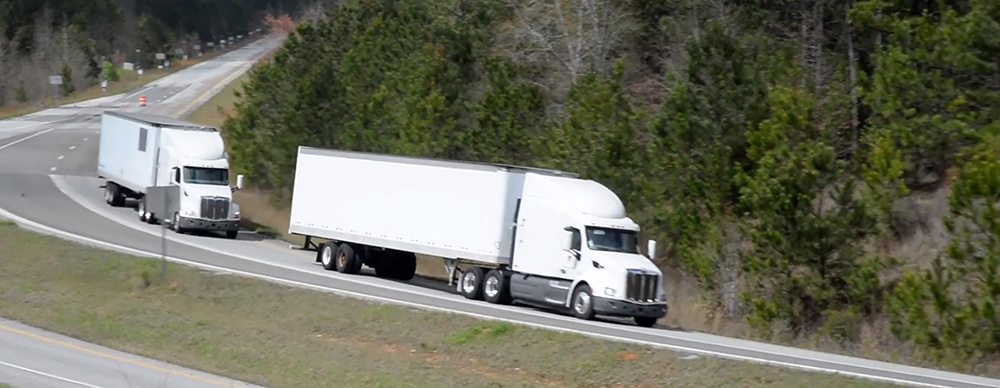Auburn engineers collaborate with industry partners on autonomous truck platooning

David Bevly, Albert J. Smith Jr. professor in Auburn University’s Department of Mechanical Engineering and director of the GPS and Vehicle Dynamics Laboratory, is leading a team of researchers on a Federal Highway Administration project to develop a drive-assistive truck platooning prototype (DATP), with the goal of saving fuel and decreasing traffic congestion without compromising safety.
 |
| Bevly |
The researchers are investigating partial automation – including throttle and braking systems – for two-truck platooning by integrating vehicle-to-vehicle communications and adaptive cruise control (ACC). Combining the communications system with ACC enables the following truck to travel at a close, yet safe, distance to the truck ahead.
The technology, called cooperative adaptive cruise control, uses radar for longitudinal sensing, as well as dedicated short-range communications (DSRC) to allow vehicle-to-vehicle communication. Trucking fleets will benefit from this system by reducing collision-related expenses, fuel costs and emissions.
Testing for phase one of the project took place on the 1.7-mile track at Auburn’s National Center for Asphalt Technology (NCAT). A report on the first phase of research showed that all trucks in a platoon gained fuel efficiencies. Phase two will include further testing on the NCAT track, as well as highway trials.
“Our preliminary conclusions are that the DATP system will really help increase safety on the road while decreasing fuel consumption,” said Luke Humphreys, graduate research assistant. “All of our current metrics point to drivers being comfortable with the system, and many of our fleet managers think that the DATP system will have a positive impact on driver retention.”
The Auburn team includes Richard Bishop, consultant responsible for organizing the research team; Alvin Lim, associate professor of computer science and software engineering; Chase Murray and Richard Sesek, assistant professors of industrial and systems engineering; Andrew Shelton, assistant professor of aerospace engineering; and Rod Turochy, associate professor of civil engineering. Project partners are the American Transportation Research Institute, the research arm of the American Trucking Association; Meritor Wabco, a leading supplier of braking and safety systems; Peloton Technology, the creator of a system combining radar and DSRC communications; and truck manufacturer Peterbilt Motors Company.





